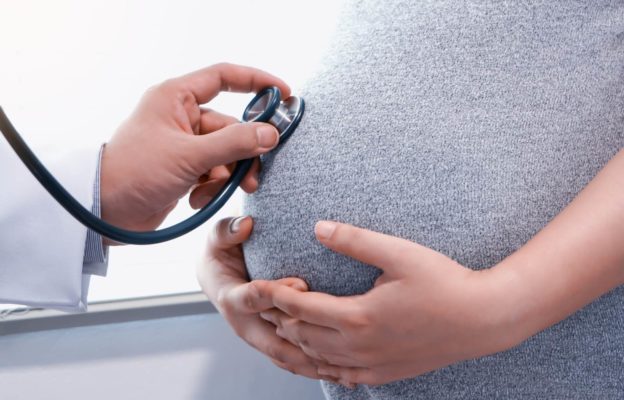When trying to conceive, there are many obstacles couples may face. A low ovarian reserve can cause a delay in getting pregnant or may even make it impossible to have a full-term pregnancy. The cliché “my biological clock is ticking” refers to the ovarian reserve, basically the number and quality of reproductive eggs available. While this condition cannot be reversed, modern science offers a chance to treat low ovarian reserves. If you have concerns or have been diagnosed with a low ovarian reserve, continue reading how fertility clinics in Ontario may be able to help you.
What Is Low Ovarian Reserve or Diminished Ovarian Reserve (DOR)?
A low ovarian reserve, medically referred to as Diminished Ovarian Reserve (DOR), describes the
loss of reproductive ability of the ovaries due to the state of the remaining eggs. Your doctor may refer to the condition as having a lower number of egg cells than expected for your age. A woman’s ovarian reserve can be best explained as the ovaries’ ability to produce quality egg cells that are able to be fertilized for a healthy pregnancy. This condition is one of the leading causes of infertility in women because if untreated, it can hinder implantation. For those with a low ovarian reserve that do become pregnant, there is a high chance for miscarriage due to the eggs being of poor quality.
What Causes Low Ovarian Reserve?
All women are born with a certain number of developing eggs, normally between one to two million. This amount is all one has and as we age, the number decreases. In some cases, there is no apparent cause for the diminished ovarian reserve. This being said, there are a number of factors that can contribute to a low ovarian reserve. In addition to aging, harmful lifestyle activities such as tobacco use can be linked to a lower count as well as genetic abnormalities. Many women have diminished ovarian reserves due to endometriosis, chemotherapy or radiation treatments, a previous pelvis infection, or an autoimmune disease.
What Are the Signs of Low Ovarian Reserve?
As with many conditions, there may not be symptoms indicating that there is an issue with a low ovarian reserve. For those women who do show signs, however, they may experience abnormal periods such as a heavy menstrual flow, a late menstrual cycle, or even no periods after being regular for years. Women may also suffer infertility after months, and even years, of trying to conceive. A miscarriage can also be an indication the ovaries are affected.
Also Read: Recurrent Pregnancy Loss: Fertility Treatment Options for MiscarriagesHow to Test for Low Ovarian Reserve
A diminished ovarian reserve can be determined by diagnostic testing such as hormone calculation of follicle stimulating hormone (FSH), anti-Mullerian hormone (AMH), and the estrogen form estradiol. A transvaginal ultrasound may be done to thoroughly examen the ovaries, uterus, cervix, and the pelvic region. The natural-producing FSH is made in the pituitary gland. This hormone is crucial to a woman’s sexual progression as it aids in menstrual cycle regulation as well as promoting egg growth within the ovaries. For men, FSH controls sperm production. It should be noted the FSH levels can vary from month to month. The AMH is a protein hormone that is present in the development of the follicles that hold a developing egg within the ovaries. This hormone is measured to detect the possible number of follicles present in the ovaries, or the ovarian reserve. The FSH and AMH hormone levels are crucial components to the ability to conceive and the number of eggs available for fertilization. Age plays a part in these levels as well as the FSH tends to increase while the AMH drop. Women with a diminished ovarian reserve have increased FSH and low AMH levels. Although both men and women have a form of estrogen known as estradiol, the level of this hormone is more crucial to the sexual development and function in women. Estradiol is produced by the adrenal glands, breasts, and the ovaries. High levels in a woman can be seen with a low ovarian reserve and can produce a false low FSH level reading. When it comes to testing, the FSH and estradiol levels are compared for this reason.
Fertility Treatments for Low Ovarian Reserve
Science has yet to discover methods to prevent diminished ovarian reserves or to reduce the rate of ovarian aging. For those who have been diagnosed with this condition, however, there is still hope to conceive with a little help of reproductive technology. The most common low ovarian reserve treatment entails using a supplement known as dehydroepiandrosterone (DHEA). This fertility hormone is naturally produced by the body in the adrenal gland. The amount decreases over the years and is a significant part of the production of estrogen and testosterone. Fertility preservation is a common procedure for diminished ovarian reserve conditions, as well as before a patient undergoes aggressive medical treatments to preserve the eggs or reproductive tissue. In low ovarian reserve cases, the eggs are removed and frozen to be used at a later time. Another option is ovarian superovulation. This technique has hormones injected to stimulate ovulation of the eggs which are then removed for either freezing to be used at a later time or used for
in vitro fertilization (IVF) to later be implanted in the womb. Women who are receiving IVF because of a diminished ovarian reserve may use donor eggs that were fertilized by their partner’s sperm or a donor sperm. This can allow the woman to be implanted with the embryo for a full-term pregnancy.
Fertility Assessment Solutions at ONE Fertility Kitchener Waterloo
ONE Fertility Kitchener Waterloo is a progressive fertility and IVF clinic focusing on using advanced science along with compassion to create a personalized care plan. Our knowledgeable and experienced staff provide fertility assessments, treatment, and counselling based on your needs.
Contact one of our friendly representatives at our fertility clinic in Kitchener-Waterloo at (519) 650-0011 today.





